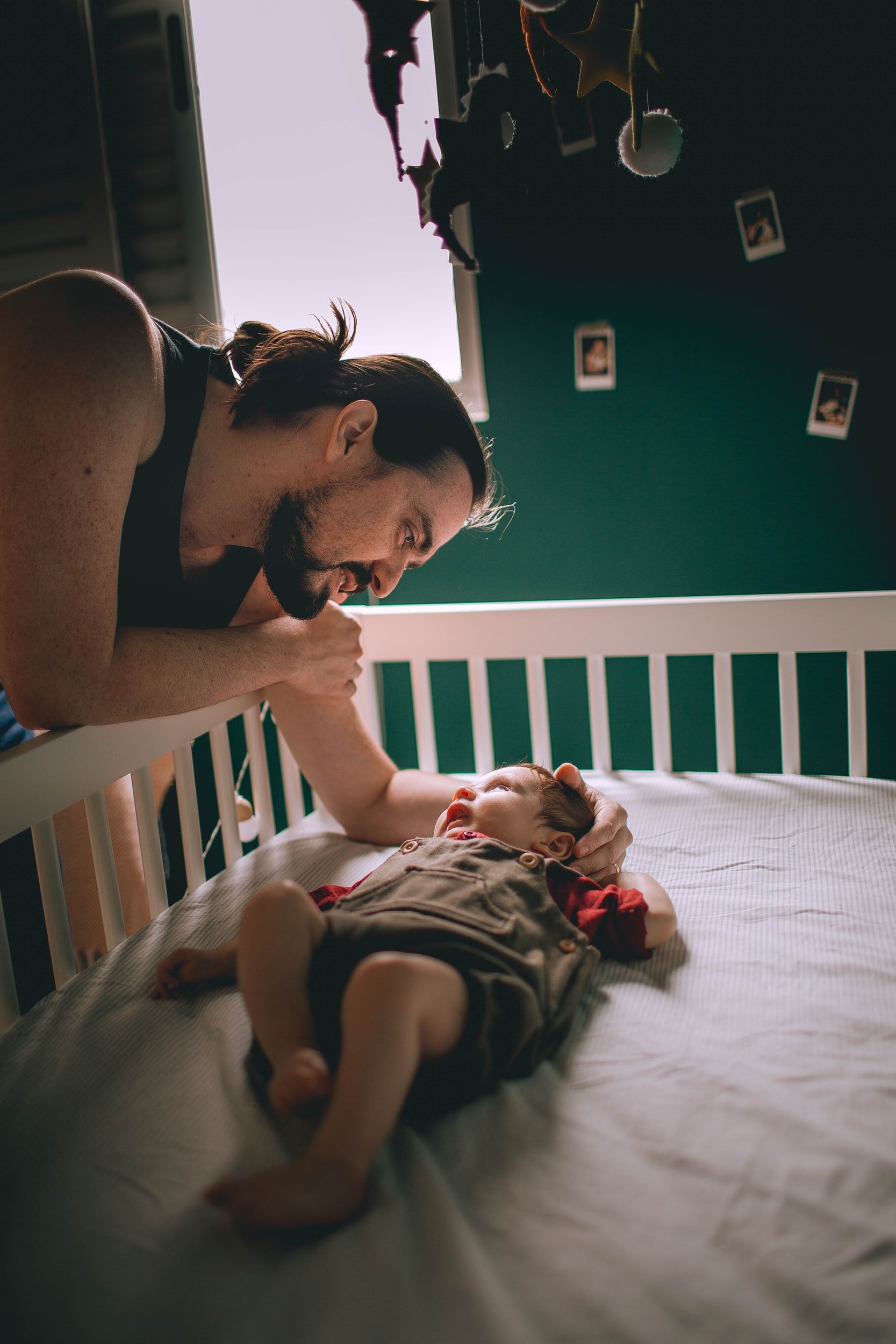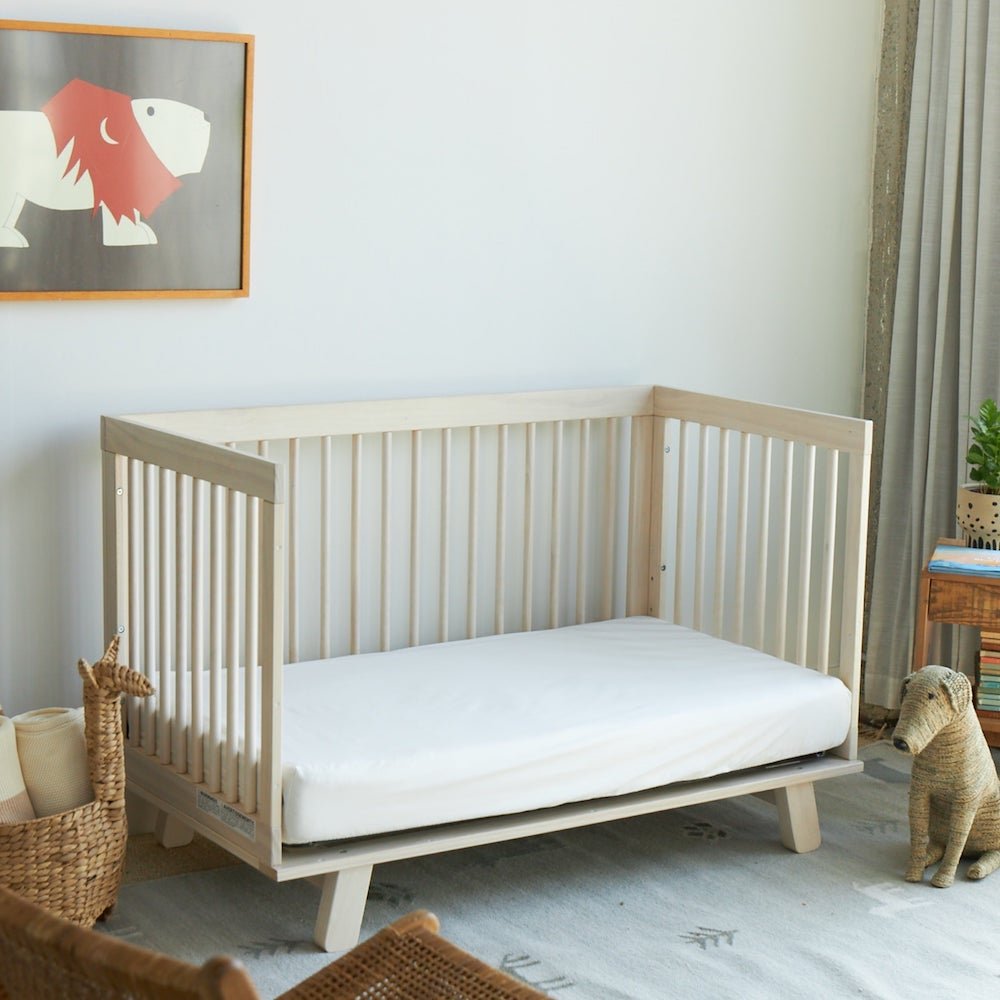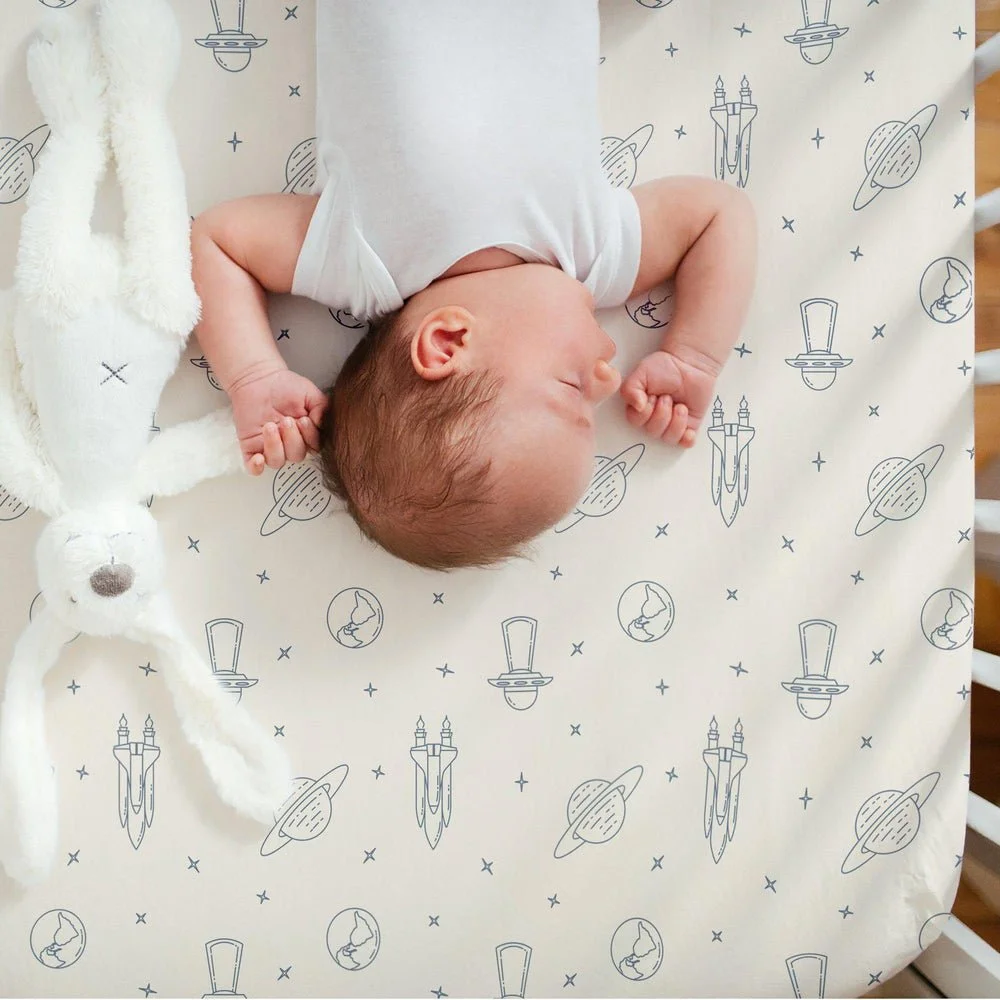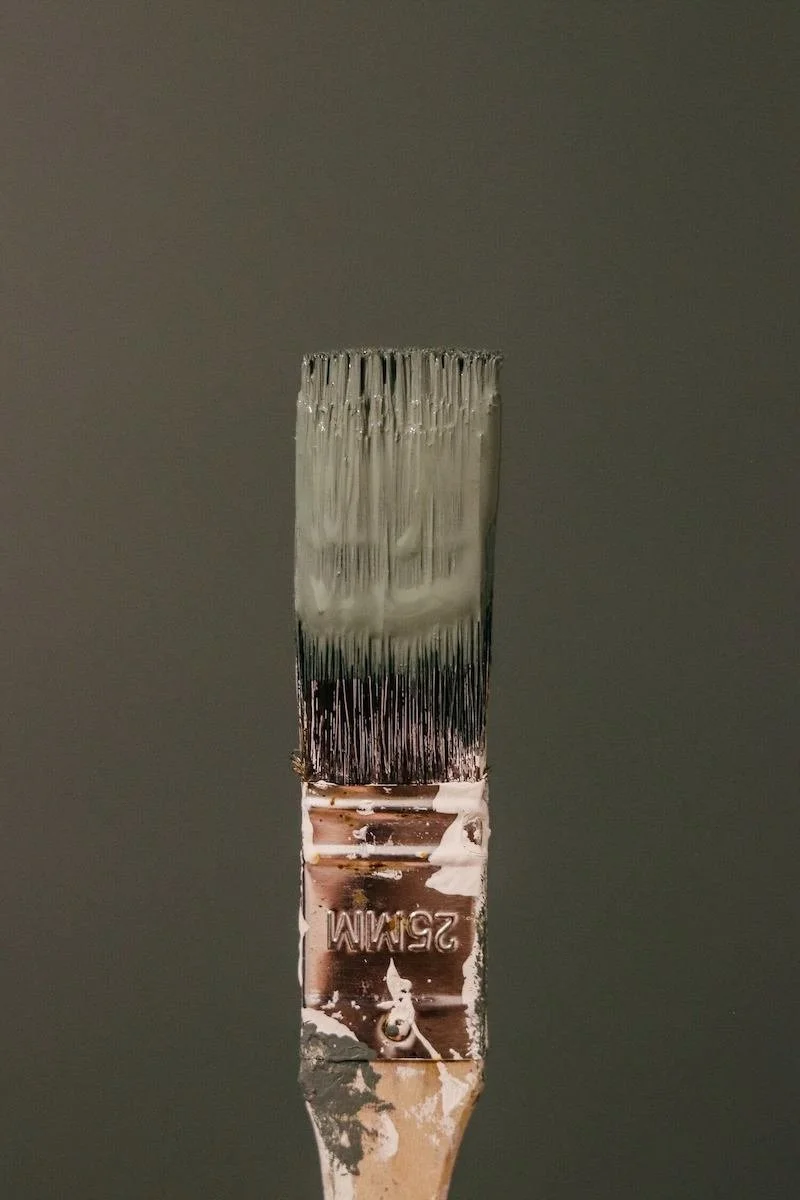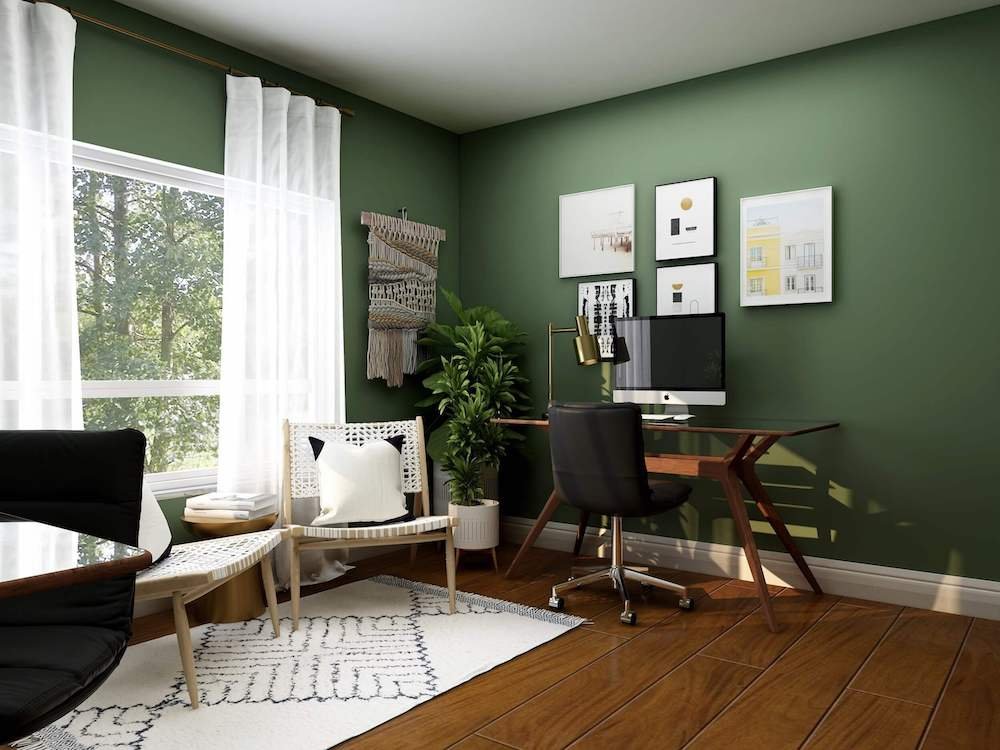The Best Organic Cotton Crib Sheets
When putting together a baby's crib it's important to get the best crib sheets. It can be tricky to find organic sheets for a standard crib given all the synthetic materials on the market today!
This guide will explore the benefits of organic cotton with a baby's sensitive skin, the environmental impact of cotton, and introduce you to a few sustainable bedding brands to help you find the perfect crib sheets for your nursery.
This post does contain some affiliate links which means The Honest Consumer may receive a commission if you decide to purchase, however, at no additional cost to you!
The Rise of Natural Products Made with Cotton
Cotton is a popular and versatile plant with a long history. Its production into cloth dates back thousands of years and today it has become one of the most-widely used fabrics.
Its use extends to all manner of items, including fishnets, book binding, and coffee filters.
But our immediate association tends to be with clothing and household items like t-shirts, dresses, towels, and bed sheets.
With its many benefits – it’s soft, breathable, durable, and absorbent – it’s easy to understand why it’s popular.
However, with the rise of plastic’s popularity – including its use in clothing – cotton started becoming blended with synthetic fabrics such as nylon and polyester, which are made from plastic polymers.
These synthetics have many downsides, one which is their negative environmental impact, compelling consumers to seek out completely natural fabrics such as 100% cotton.
Paired with a heightened awareness of the impact of certain fabrics and how they can effect our skin, not to mention the health of agricultural workers, consumers have started realizing the importance of shopping for items made from 100% cotton and taking the extra step ensuring that cotton is organic.
What's the difference between organic cotton & conventional cotton?
Organic cotton is allowed to grow naturally as much as possible. Unlike conventional cotton, it is grown using non-GMO seeds and without the use of pesticides, herbicides, and synthetic fertilizers.
Because organic cotton is hand-picked instead of machine-picked, damage to the fibers is limited, resulting in a softer, more durable fabric.
Chemicals used during processing or dyeing conventional cotton cause further damage.
With organic manufacturing, safer alternatives to dyes and whiteners are sought to further reduce or eliminate the use of toxic chemicals.
When choosing sheets for a little one, you definitely want to avoid toxic substances and choose high quality organic cotton for health, safety, and environmental reasons.
Health Benefits of Organic Cotton Crib Sheets
Choosing safe materials for baby products seems like common sense, but unfortunately a lot of brands are still using harmful substances and unsafe materials.
Due to the demands of fast fashion, pesticides, herbicides, synthetic fertilisers, and GMO seeds are used to help conventional cotton grow faster so more can be grown and thus more clothing and other products, such as bedding, can be made at a higher and faster rate.
However, this can have negative implications for our health, the health of babies, and especially that of workers in cotton fields and factories.
Agricultural workers can be directly exposed to the toxins present in pesticides, leading to health problems such as skin and eye irritation, headaches, dizziness, vomiting, and fever.
While the end products may not have toxic residues from pesticides, the harsh chemicals used in dyes and treatments may linger.
This is especially important to keep in mind when it comes to baby products like crib sheets.
A baby’s delicate skin is not only less resistant to bacteria, but also absorbs more easily than an adult’s skin, making them more vulnerable to chemical residues. Choosing sheets made with organic materials can help prevent skin irritation!
Environmental Benefits of Organic Cotton Crib Sheets
When it comes to organic cotton’s environmental benefits, we may often be faced with a catch-22, because the eco-friendly argument for organic over conventional is not a black and white one.
The big environmental plus of organic cotton is the reduction or elimination of toxic chemicals. Because no pesticides, herbicides, or synthetic fertilizers are used, the health and integrity of the air, soil, and water are promoted.
Soil health is further maintained through sustainable growing methods such as crop rotation and intercropping, which also supports a thriving, symbiotic ecosystem, thus protecting biodiversity.
Conventional cotton, meanwhile, is grown on the same soil through monocropping, further degrading the quality of the soil.
When it comes to the use of toxic chemicals, the dyes used in conventional cotton contain some of the harshest, and the dyeing process produces a lot of waste water. Organic cotton thereby has further environmental benefits in this regard.
Since dyes are avoided – or eco-friendly alternatives used – water quality is preserved. Furthermore, when cotton is picked by machine (as is the case for conventional cotton), fibers can be damaged leading to loss and waste.
GMO seeds used in conventional growing methods can be developed to be pest-resistant, but over time pests may build an immunity against these thus requiring more pesticides, leading to a vicious cycle in which more toxic chemicals are applied.
However, due to the pesticides, conventional growing results in higher cotton yields.
GMO seeds may also be produced not only to resist pests, but to produce more cotton per plant.
Organic cotton, on the downside, yields less which means more land is required.
The requisite for more land can contribute to deforestation, a major driver for human-induced climate change as forests act as carbon sinks.
Deforestation also impacts biodiversity as habitat is destroyed.
The huge downside to cotton – whether organic or conventional – is that it’s a very thirsty crop and uses tons of water to grow. Less yield means not only more land but more water is required.
This is bad news, because cotton is already so thirsty.
While organic cotton can preserve the quality of the water, unless it depends on being rain-fed, it can ultimately use more water.
Third Party Certifications to Look for on Organic Cotton Crib Sheets
If you are buying organic clothing or sheets, be aware that the product may not be organic from start to finish.
While some products may use cotton grown organically, the same may not be true for the manufacturing processes.
To guide you in finding organic cotton crib sheets, here are some labels to look out for. These labels may also help you find brands that adhere to high social and environmental standards.
Better Cotton Initiative: While this label does not necessarily mean a product is organic, BCI promotes sustainable and ethical farming practices.
Global Organic Textile Standard: GOTS certification is a leading textile processing standard for organic fibers, GOTS is backed by a high standard of social and environmental criteria, ensuring all stages of the supply chain are toxic-free.
Made Safe: Made with Safe Ingredients verifies that products are made with ingredients not known or suspected to harm the health of humans, animals, or the environment.
OEKO-TEX: his certification also tests for the absence of harmful chemicals, ensuring a product is safe for human use.
4 Organic Cotton Crib Sheet Brands to Try
If you're ready to find some organic cotton sheets for your baby's bedding then we have some sustainable bedding brands that are a great choice.
Avocado's Organic Breathable Crib Sheet
Avocado specializes in all manner of comfortable and conscious homeware, including vegan mattresses, bases made from sustainably harvested wood, organic towels, and much more.
Avocado offers crib sheets stitched with 100% organic GOTS-certified cotton in a luxurious, 400 thread count single-ply weave. Their crib sheets are non-toxic, lightweight, and breathable, as well as MADE SAFE certified.
Ethically grown in India, Avocado’s cotton wicks away moisture well, and sheets are pre-washed and processed to maintain a neutral pH level, making them even better for your baby’s skin. Avocado's fitted crib sheet features a snug fit and can be purchased for $40.
Makemake Organics Fitted Crib Sheet with Fun Patterns
Makemake Organics specializes in clothing and bedding for babies and toddlers. Makemake was founded by concerned parents who wanted only the best for their baby girl, and so were inspired to create products made from sustainable sources that are natural and toxic-free.
The organic cotton Makemake Organics uses is GOTS-certified, containing no harmful toxins, dyes, or pesticides. Their crib sheets are also pre-washed for extra softness and minimal shrinkage.
In addition, they offer playpen and bassinet sheets, along with quilts, comforters, blankets, and much more to prepare the perfect baby’s bedroom.
Makemake Organics bedding features a cute pattern and secure fit over the. mattress. Their fitted crib sheet can be purchased for $34.
Nestig Organic Cotton Crib Sheet Sets
Nestig makes functional, sustainable cribs, as well as mattresses and washable rugs – just what you need to get started on your baby’s cozy room. They also offer sheets that are made from GOTS-certified organic cotton.
Handmade in Brazil using OEKO-TEX® certified, non-toxic dyes, the sheets are suitable for machine washing and tumble drying, making this an ideal and practical choice. Nestig's organic crib sheet sets range from $35-$50 and feature adorable patterns.
Colored Organics Natural Fitted Sheet
Founded by a mother looking to create ethical products for a comfortable and conscious home, Colored Organics focuses on organic clothing for babies and kids.
This includes items perfect for bedtime like sleepers, gowns, and pajamas. Additional products from Colored Organics include their organic cotton fitted crib sheets that have a 300 thread count sateen weave and are made without any dyes, bleach, or processing chemicals. This fitted sheet made with natural materials can be purchased for $42.
Tips on Caring for Organic Cotton Sheets
When washing organic cotton sheets it's best to read the product instructions, but here are some general tips for caring for your crib sheets.
Most organic cotton sheets are machine washable, but double check the manufacturer of the product to be sure!
Choose some gentle plant based detergent that is good for sensitive skin.
Wash in cold water
Consider putting the washing machine on delicate if you want your sheets to last longer!
Tumble dry on low heat with wool dryer balls
Hopefully this guide helped you better understand the importance of natural fibers, such as organic cotton, in a baby's room. Next time you're shopping for safe crib sheets keep your eyes open for the organic certification!
For more tips & tricks on sustainable living be sure to follow The Honest Consumer on social media, subscribe to our newsletter, & check out the Ethical & Sustainable Brand Directory.





